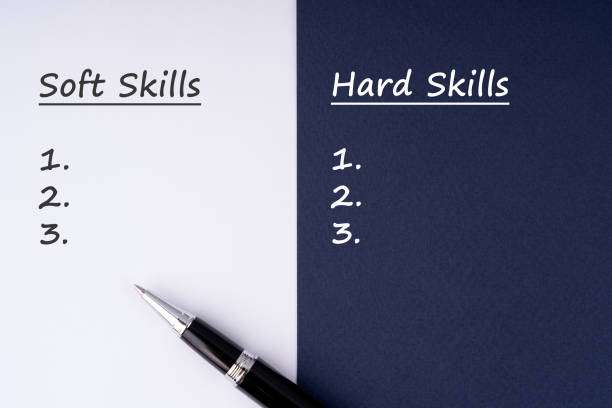14 Powerful Soft Skills for Resume and How to Use Them
To get a job in today’s extremely competitive employment market, you must have the necessary skills. Aren’t we tired of hearing this sentence on every career-related website? As crucial as it is to have these skills, you must also be able to effectively reflect them on your CV. As you may know, there are two categories of abilities: hard skills and soft skills. While stating your hard skills directly in your CV is simple, doing the same thing for your soft skills can be more difficult. This is because, while employers admire soft skills, they do not want to see just a list of them. Rather, you should illustrate your soft skills for your resume with examples, a proven track record from previous experiences, and so on. Continue reading to learn more about soft skills for resumes. What Are Soft Skills? Soft skills are a collection of personal characteristics that enable you to form relationships with others. Some of them include interpersonal skills, common sense, personality, emotional intelligence, and a positive attitude toward others. They are critical for success in the workplace because they influence how we interact. Soft talents are either impossible to obtain or infamously difficult to gain through standard education. They are, however, transferrable. What does this mean? In summary, your skills are transferable, regardless of your profession. For example, if you are a great communicator, you will continue to be one even after changing jobs. Employers now place a greater emphasis on soft skills than ever before, thanks to the rise of hiring for attitude. Soft skills in the workplace are the driving force behind any business’s success. Soft skills enable team members to effectively collaborate and produce synergistic benefits. The truth is that you can educate people to use new software or do specific job-related duties relatively quickly. But you cannot teach them basic sense. Alternatively, they could change their character. What Is the Difference Between Soft and Hard Skills? Job recruiters and hiring managers prioritize hard and soft skills in job ads, and the ideal new hire will have both. Hard skills are teachable and transferable skills that people acquire through training or certification programs, like Qavdev Academy. Computer programming, data analysis, and bookkeeping are examples of job-specific technical abilities that require devoted training. Soft skills are often personality qualities and interpersonal abilities that emerge over time as a result of personal development and maturation. Soft skills are in high demand because they are harder to develop than hard abilities. Leadership, organization, time management, problem-solving, and verbal and written communication skills are examples of soft skills. How to Include Soft Skills for Resume When creating a resume, consider the following recommendations for including soft skills: Include a skill area: A chronological résumé often includes a skills section at the bottom. You can also utilize a functional résumé structure, which emphasizes abilities rather than job experience. In either format, underline the skills that are relevant to your employment hunt. List soft skills from each previous job: Enter accomplishments and soft skills for each role in the work history section. For example, to emphasize a cost-saving solution you devised for a previous employer, you could mention the soft skills required for implementation. Consider whether you used critical thinking abilities to develop a strategy, actively listened to coworkers to acquire information, or presented the final results to your team members. Review the job description: Identify the position’s specialized soft skills from the job description. Optimize your résumé to include any of the abilities you possess, and include them in your cover letter and during the job interview. Examples of Soft Skills for Résumés Employers are looking for job seekers with soft skills who can contribute to a healthy work environment and perform well in teams. Consider mentioning the following soft skills on your resume, if relevant: Active listening Adaptability Collaboration Conflict resolution Creativity Critical thinking Customer service Decision-making Dependability Emotional intelligence Leadership Mentoring Public speaking Problem-solving Project management Teamwork Time management Verbal communication Written communication Frequently Asked Questions What are soft skills? Soft skills are personality qualities and specific characteristics that enable us to interact well with others and succeed in our profession. They are interpersonal abilities, often known as people skills, that require emotional intelligence and context awareness and are typically universal (not job-specific). If you had to name soft talents, think about being detail-oriented, having strong critical thinking abilities, collaborative skills, and so on. Soft skills usually supplement the hard/technical abilities needed for a specific career. What are some examples of soft skills? Here is a list of the top fifteen soft skills: Communication skills Time management skills Problem-solving skills Decision-making Critical thinking Conflict resolution Adaptability Teamwork Leadership skills Negotiation Management skills Why are soft skills important? A candidate’s work ethic and ability to collaborate with others are equally important as their ability to complete a task; thus, employers look for qualities that go beyond technical and hard skills. You must demonstrate that you have the critical personal talents required for the position. For example, if you work in a client-facing capacity, you must have excellent customer service abilities. If you work as an office manager or executive assistant, your administrative skills should include organizational and interpersonal abilities, in addition to computer knowledge. So, if you want a competitive advantage, make sure you highlight soft skills and work accomplishments. Why do you need hard and soft skills on your resume? In today’s business, it’s no longer a question of hard abilities versus soft skills; both are regarded as equally required and important. For example, the IT abilities required for tech professions would almost probably comprise both hard skills (such as coding or data analysis) and soft skills (such as collaboration and communication). The trick is to be able to blend both types of professional skills on your CV to demonstrate that you are both a specialist in your industry and a responsible, team-oriented person. Conclusion Finally, here’s what you should know about soft skills:
14 Powerful Soft Skills for Resume and How to Use Them Read More »





